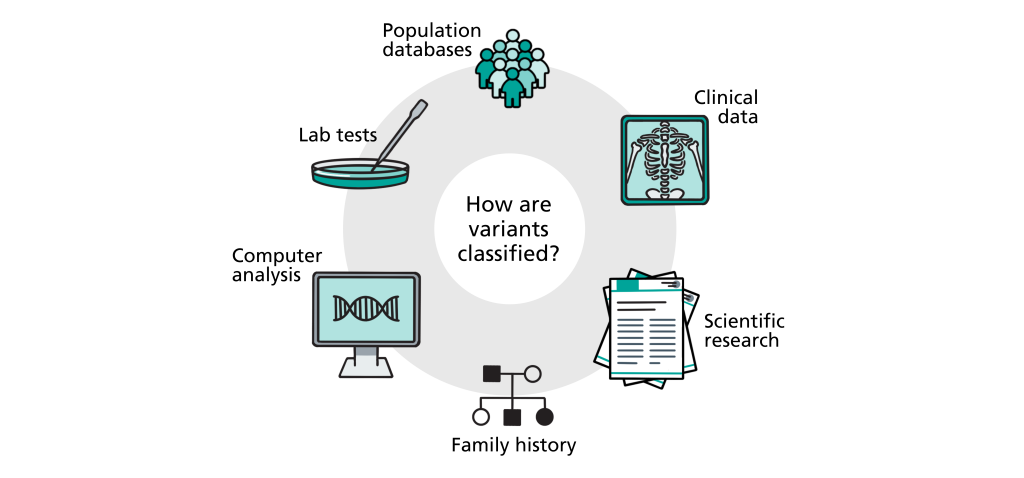Visual communication aid: Variants of uncertain significance (VUS)
This communication aid has been produced to complement discussions about variant classification and variants of uncertain significance during consultations with patients.
View and download communication aid(s)
There is one communication aid available to view and download (.pdf):
Double-sided printing in colour is recommended (but not required). All content is also included below in an accessible format.
More information about these and other VCAs is available in this article.
What is a variant?
Variants are differences in DNA (gene changes) that make us unique. Most gene changes are harmless (benign), some cause genetic conditions (pathogenic).
Classifying variants
To find out if a variant causes a genetic condition, scientists gather evidence from lab tests, computer analysis, scientific research, population databases and a person’s health and family history (figure 1).
Using this evidence, the variant is classified based on how likely it is to cause a condition. Only variants classified as “pathogenic” or “likely pathogenic” (disease-causing) are used for treatment decisions.
Correct classification is important, as getting it wrong can lead to incorrect treatment decisions for patients and their families.

Figure 1: How genomic variants are classified
(View larger size)
What is a variant of uncertain significance?
A variant of uncertain significance (VUS) is a gene change that does not have enough evidence to know if it causes a condition.
A VUS result cannot be used by itself to make decisions about managing or treating a condition. Genomic testing for a VUS is not offered to relatives for management of their health.
A VUS may be reclassified at a later date as more information becomes available.
If a VUS is close to being considered likely pathogenic, it may be reviewed by a team of specialists. More tests or investigations may be ordered to gather more information.

Figure 2: Genomic variant classifications, from benign to pathogenic
(View larger size)
Key phrases
- Variant: Changes in a gene or chromosome used to be referred to as ‘mutations.’ Now, they are more commonly called changes, alterations or variants.
- Benign variant: a harmless gene change that doesn’t cause any health problems
- Pathogenic variant: a gene change that can cause a health condition
Resources
For patients
- Unique: Interpreting genetic test results (pdf)